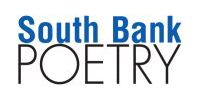Tea and Toast With Bloodaxe Poet Esther Morgan
Esther Morgan has been one of my favourite go to poets for a few years now. I love her books, which are always full of amazing poetry. Esther Morgan is a rarity in the poetry world, she does not do filler poems in her books. Every poem has earned a place in her collection for the best of reasons. Her latest book ‘The Wound Register’(Bloodaxe Books, 2018) looks at war, being a mother and childhood and I can not put it down as I want to read it again and again. She has the ability to fasten the reader to their seats and never stops surprising me. If you only read one new poet this year please read her.
Outbreak
4th August 2014
One hundred years to the day since it started
and I’m sat in the heavy air of the garden
as the monitor flares green with your laboured breathing
wondering where it’s all going to end –
*Taken from ‘The Wound Register’(Bloodaxe Books, 2018)
Q1- Why do you keep writing? What is it about poetry that keeps you writing it?
There are so many different answers to that question. But I go back to a metaphor I’ve used when trying to explain to school groups what it’s like for me writing a poem – and I ask them if they’ve all had the experience of building a den and what that feels like. And they talk about privacy and making something that’s your space, and having a place to go to when you want to be alone and I say, well that’s what it feels like when I write a poem. Like making a den out of words. And that still feels a very true analogy – that sense of wanting to create a space, a territory which is my own. And sometimes the den is a bit shoddy and won’t last the night and sometimes it’s a good one and I can get right inside where its dry and listen to the rain pattering on the fern roof and know that for a while no one is going to call me in to finish my jobs.
Q2- It has been 7 years since your last collection, in that time you have become a mother, were you ever tempted to put your pen down?
In the first year after my daughter’s birth it was difficult to maintain a sense of myself as a writer. I’ve never been a person with huge reserves of energy, so the sheer exhaustion in the early months was enough to put a halt to writing. But I was always determined not to let it disappear entirely. A lot of people say becoming a parent changes you completely and while it’s true that it does bring about a huge transformation in the way you live your life and your emotional responses to it, I always felt I was still me and that trying to write poems was a vital part of that identity which I wanted to protect. As the mother of a daughter I am also very conscious of wanting to provide an example of a woman who has a creative life as well as her role as a wife and mother. There’s a wonderful Tess Gallagher poem called ‘I Stop Writing the Poem’ about a woman interrupting her imaginative work to get the washing in and folded while a daughter looks on ‘to see how it’s done’ – it’s a useful warning. A friend once said to me that the thing about being a mother is that we are ‘endlessly interruptible’ and it’s true. There’s a constant balancing act of being available enough for your child and protecting your creative time.
Q3- Your latest collection ‘The Wound Register’ looks at motherhood, war and childhood, what attracted you to write about them? Do you see them as being connected?
Becoming a parent I think inevitably sends you back to your own childhood and makes you reassess how you were as a child and relationships within your own family. This coincided with the centenary of the First World War and a desire I’d had for a long time to write about my grandmother whose father was killed at the Somme in 1916. I saw my grandmother almost every day as a child so her personality had a big effect on me. That early experience of loss and poverty really ruined her life I think, and shaped the way she lived and reacted to other people. I wanted to explore the aftershocks of that conflict and how they continue to seep through the generations even after all this time. My grandmother loved me and was caring of me, but her grief and sense of grievance did affect my emotional landscape as a child and I guess having my own daughter made me think of the ways in which we pass things on, sometimes quite dark things, without meaning to. I called it ‘The Wound Register’ because that relates to a document in the collections of Norfolk Museums Service which lists all the casualties suffered by the Norfolk Regiment during the First World War – injuries not just the fatalities. It felt like an apt metaphor for the way that psychological and emotional wounds continue to be registered by those who come after.
Q4- How do you think becoming a mother has changed how you approach your writing?
I have less time and am therefore very conscious of trying to make the most of what I have. The problem with that is it can discourage experimentation as it’s tempting to try and finish poems too quickly. I have to fight the urge to get ‘a result’ in the precious afternoon I might have once a week. So much of parenting is about practicalities of varying kinds it can be difficult to remember to slow down and allow for the deeply impractical process of creating a poem. I miss squandering time! I have a poem in ‘The Wound Register’ which came out of these feelings. It ends ‘Not everything has to be saved’ – it’s in the context of having apple trees in a garden which is lovely but the autumn comes around with the nagging guilt that you should be doing something literally fruitful with all this bounty – the tyranny of the home-made. It was an attempt to remind myself that sometimes it’s ok to let things lie where they’ve fallen.
Q5- I find reading your poems very soothing. They are somehow quiet yet full of noise and life. Where do you go from here? Are you writing at the moment?
I don’t feel very peaceful much of the time so perhaps that’s why I like to create still spaces sometimes in my poems. Though with ‘The Wound Register’ there is more of a sense of daily life impinging on the poems which is one of the ways becoming a mother has affected my writing. The answer to where I go from here is difficult – I am working on a project at the moment but it’s too early to let on what it is in case it’s the worst idea! In terms of ambitions, I’d like to retain the intimacy of some of the poems in ‘The Wound Register’ but try to push my imagination further.
Note: We asked Esther to provide us with a photo of her writing space. Here she explains why she would rather not:
I’m less sure about providing a pic of me in my writing space – I’m really private about writing (most of which I do in bed!) so would prefer not to if that’s ok. Though I’m happy for that fact to be revealed! Writing at a desk feels like work, armchairs get uncomfortable and I just love sitting up in bed with a cuppa and warm blankets – a nice safe space I guess and since having a child time in bed feels even more of a luxury!
Esther Morgan’s book is available for purchase here.





